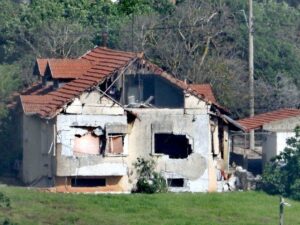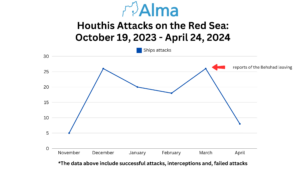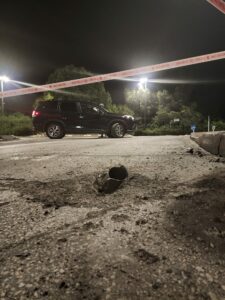The radical Shiite axis’s narcotics industry network in southern Syria, in collaboration with the Syrian army’s 4th Division (commanded by Maher al-Assad, the president’s brother), poses a significant security challenge, first and foremost for Jordan and then for Israel.
The Jordanian-Syrian border, south and east of Deraa, is a major narcotics smuggling corridor, mainly of the Captagon synthetic stimulant pills manufactured in Syria. The narcotics are destined for Saudi Arabia, the UAE, Egypt, the Gaza Strip, Africa, Israel, the Far East, and even Europe.
Southern Syria is regarded as a strategic location for the radical Shiite axis led by Iran in general and Hezbollah in particular, and the expansion of the narcotics network in this region is critical to them for three reasons:
1. It allows for the economic maintenance of the proxy in the region (creating, among other things, terrorism against Israel).
2. It enhances the opportunity for smuggling routes and the volume of smuggling, hence increasing drug earnings.
3. It provides a platform for the smuggling of “tie-breaking” weaponry into Judea and Samaria, posing a severe security problem for Israel.
The smuggling is carried out using various methods, including by foot, vehicles (also through the official Nassib border crossing, in cooperation with Division 4 and Hezbollah), drones, and possibly even through smuggling tunnels.
Smuggling activity has escalated in recent weeks. Starting on December 18, the Jordanian army and drug smugglers along the border began exchanging fire.
The Jordanian army released images of the substances confiscated, which comprised around 5 million Captagon pills and 13,000 hashish soles. The Jordanian army said that at least two of its soldiers were killed in this incident as well as in another smuggling attempt that was foiled six days prior. The Jordanian army also released images of eight drug smugglers apprehended during the border confrontations, as well as weapons and ammunition belonging to the smugglers, including Claymore IED, Anti-personnel mines, and anti-tank rockets.



Following the incidents, the Jordanian Air Force bombed targets in Syria on December 18. It was the Jordanian’s heaviest known attack. One of the objects was the targeted killing of a man named Nasser al-Saadi, a resident of the town of Salkhad, south of Sweida, who we know as a drug dealer associated with Hezbollah and the Syrian security forces.

Jordanians also carried out another attack along the border on a water pumping infrastructure in Al-Mataaiyah. There were no reported injuries. It is possible that the Jordanians discovered a drug manufacturing and shipping operation there as well, one of many along the border. It should be noted that the first airstrike by the Jordanian Air Force on Syrian territory against the narcotics production and smuggling system took place in May 2023.
The drug smuggling corridor, as expected, became a platform for smuggling firearms and ammunition into Jordan, and then the path of smuggling them into Judea and Samaria is short. Aside from the ability to use “tie-breaking” weapons, the presence of such weapons in Judea and Samaria will allow terrorist organizations to establish a knowledge-based system and the ability to produce them independently (by reverse engineering).
People involved in the production, distribution, and smuggling of drugs are also involved in the smuggling of weapons and equipment into Israeli territory from Iran or Hezbollah via Syria, with a focus on Judea and Samaria. Even before the Gaza war, in July and August of this year, several standard Iranian weaponry smuggled into Judea and Samaria via Syria and Jordan were intercepted.
We believe that as long as the war in Gaza continues, the Iranians and Hezbollah will increase their efforts to smuggle weapons from Syria through Jordan to Judea and Samaria to arm terrorist operatives there, particularly Hamas and PIJ operatives, with “tie-breaking” weapons.
In conclusion, given precise intelligence, Action must be taken on Syrian soil against smugglers, vehicles, and smuggling routes that have “physical contact” with weapons originating in Iran/Hezbollah and intended to reach Israeli territory via Jordan and which are “game-changing” weapons (Standard explosive devices, rocket parts, etc.). It is possible that in a situation in which weapons smuggling leaks over from Syrian (or Iraq) territory into Jordan, a cooperation mechanism should be established that will enable the operation on Jordanian soil. If necessary, one must also operate independently on Iraqi soil.










